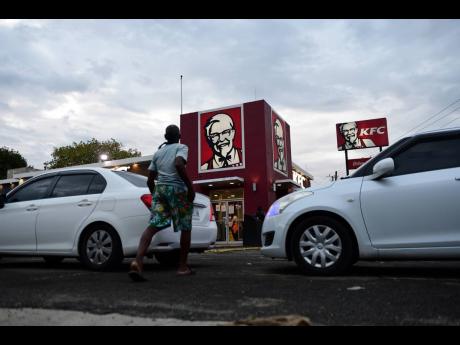24-hour blues
Many businesses freeze round-the-clock operations as post-curfew consumers slow to emerge
The aftershocks of the nightly curfew, lifted almost two weeks ago, are still being felt by operators of fast-food chains and service stations islandwide as social and spending patterns disrupted by the coronavirus pandemic have been slow to...
The aftershocks of the nightly curfew, lifted almost two weeks ago, are still being felt by operators of fast-food chains and service stations islandwide as social and spending patterns disrupted by the coronavirus pandemic have been slow to readjust.
The rising cost for goods and services is not expected to speed up the process although proprietors have argued that it has been too short a period to see any real change in consumer behaviour.
Scores of businesses have lost employees to the business process outsourcing (BPO) sector, which reportedly offers more favourable remuneration packages.
The Government’s March 18 discontinuation of the Disaster Risk Management Act (DRMA) – used to curtail the spread of COVID-19 for two years – is the strongest signal yet that the country is moving past the virus.
But the changes it has set in motion have been slow to get past, president of the Jamaica Gasolene Retailers Association (JGRA), Dianne Parram, told The Gleaner.
She said most service station owners are now running two shifts daily and that 24-hour operations have, for the most part, still been frozen.
The shifts run from 6 a.m. to 2 p.m. and 2 p.m. to 10 p.m.
“We are not seeing that level of an uptick as yet,” Parram said.
“That 10 to six shift is to facilitate the partygoers. That’s where we’d get our uptick, and we’re not seeing the parties happening as yet, and we have to make sure that it makes economic sense to open,” she added.
At a meeting last week, Parram said JGRA members were encouraged to assess their finances and overheads before moving back to 24-hour operation.
However, she said it is early days yet and operators are looking to Easter weekend celebrations for fortunes to be revived.
For Island Grill founder and Chief Executive Officer Thalia Lyn, the resumption of wee-hours operation has been crippled by the shortage of staff, many of whom would have been lost to the BPO sector.
The sector served as a rebound for workers whose hours were cut or those who were laid off by businesses disadvantaged by COVID-19 lockdowns.
“A lot of them pay in US dollars. We can’t pay in US dollars. I would also have to say it’s not as strenuous as the QSRs (quick-service restaurants). It’s a fact. And it’s not just Island Grill. A lot of the QSRs are short on staff, and because of that, we can’t take advantage of the extended hours,” Lyn told The Gleaner, adding that the franchise is currently recruiting.
Group CEO at Restaurant Associates Limited (RAL), Lisa Lake Epstein, said in a Gleaner interview that the company has been observing other markets to see how they have fared with the discontinuation of the DRMA.
RAL franchisees in Jamaica include Burger King, Popeyes, and Little Caesar’s.
Lake Epstein said indications from other markets that have reopened are that the removal of the curfew does not automatically result in an immediate return to pre-COVID buoyancy.
“As we adjust to the new normal, RAL is gradually phasing in the reopening of dining rooms and resumption of 24/7 drive-through at the select stores that would usually offer this service. We look forward to serving our regular 3 a.m. customers again,” she said.
Meanwhile, president of the Private Sector Organization of Jamaica (PSOJ), Keith Duncan, said while it is still early to give a sweeping assessment of the sector, the emergence of the digital delivery economy, as well as remote and home-working arrangements, is a structural shift that has impacted consumer behaviour.
Duncan noted that for the past two years, the country has been socialised to get home earlier.
“We anticipate that it will take a few weeks for consumers to break out of that pattern and cycle,” he said.
“The world is also in a very uncertain place at this point in time, especially the inflationary environment and the supply-chain disruptions, which would leave businesses and the consumer in a very cautious space.”
He said that several of the major QSRs have resumed full operations or are moving towards regular shifts over the next two to three weeks.
“We are also aware that some establishments have started giving notices to their employees for them to make preparations to do new or extended shift times,” said Duncan.

